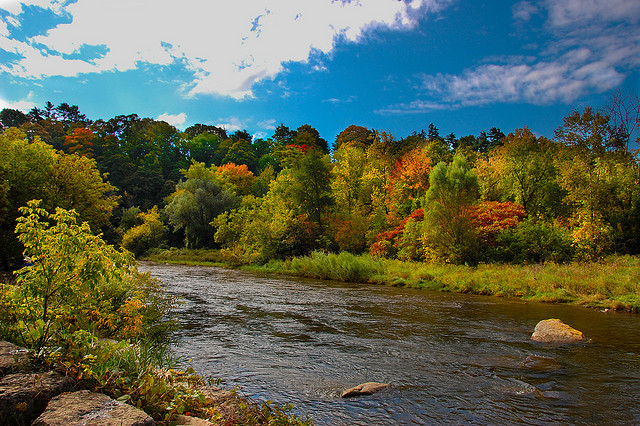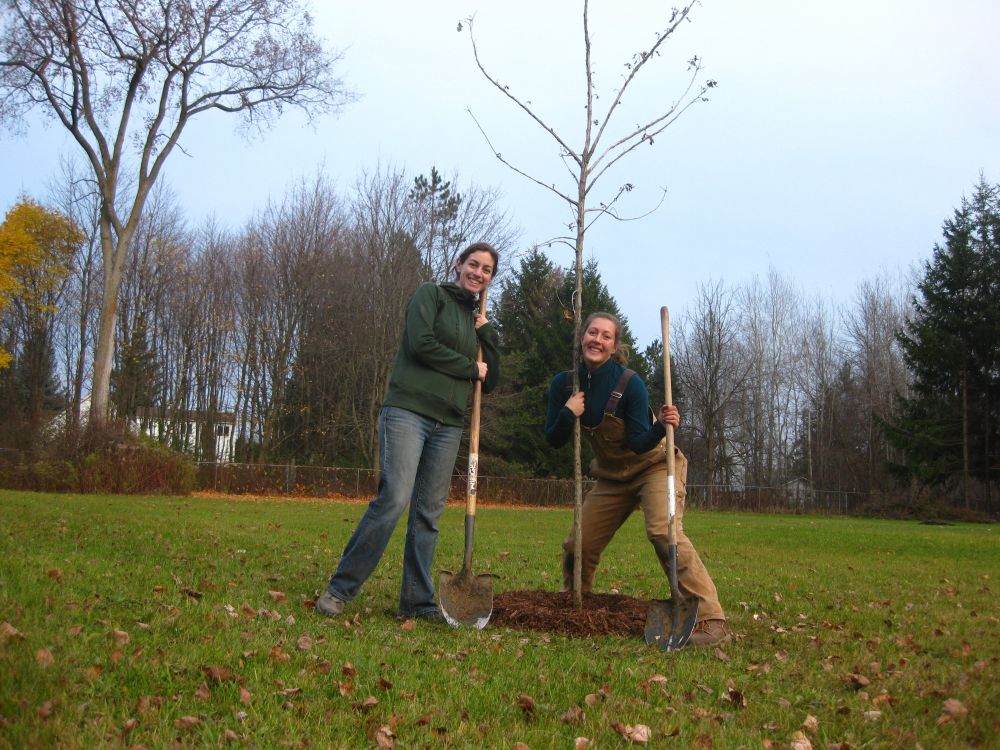Steve Hounsell, President of the Board of Directors for Forests Ontario, gave the opening keynote address. Something that really resonated with me was Hounsell’s belief that we can harness people’s passion for trees and use it as a catalyst for garnering more support for protecting and expanding forest cover across the province. I also learned that Hounsell used to work at Ontario Power Generation and was the visionary behind their Biodiversity Program which continues to support LEAF programs today!

Next we heard from Dr. Taylor Scarr, Provincial Forest Entomologist with the Ontario Ministry of Natural Resources and Forestry. Dr. Scarr provided a thorough overview of invasive insect and plant species that currently threaten Ontario’s forests and even discussed some others that are making their way towards us from the United States, such as the Hemlock Wooly Adelgid.
Shifting focus to the urban forest, Kim Statham from the City of Toronto spoke about the municipality’s response to the ice storm of December 2013. It was remarkable to learn that the City received over 52,000 storm-related service calls in 2014 alone (compared to the 7,000 they typically receive in a given year). While cleaning up after the storm surely was a great challenge for Toronto, it did provide the municipality with the opportunity to undertake an assessment of roughly 60,000 public trees to determine where maintenance priorities lay. They were also able to identify 100,000 potential planting locations for new street trees.

On the topic of weather, we also heard two speakers discuss future climate and the effects that anticipated changes will have on our forests. Dan McKenney of Natural Resources Canada and Gary Nielsen of the Ministry of Natural Resources and Forestry discussed the implications of climate change on various tree species and on seed source selection. It was very interesting to learn about the research being undertaken and tools being developed to help foresters decide what to plant where in light of modelled climactic shifts.
During the lunch break, a variety of awards were presented, including the Ontario Wood Award which went to the City of Toronto, our partners in raising awareness about the importance of urban wood utilization.
The afternoon keynote address was delivered by Fred Pinto, the Executive Director of the Ontario Professional Foresters Association. Pinto spoke about the charitable organization he founded, Forests Without Borders, which works independently or with existing non-government organizations to deliver the skills, knowledge and tools that enable poverty stricken communities around the world realize and gain from the many benefits that forests provide. It was inspiring to hear about projects this organization has undertaken to connect citizens around the globe with the trees in their communities. One example Pinto discussed was their “Trees for Hope” project, which works with local villagers in Zambia to establish an orchard of trees that can serve as an important source of protein for the sick and children and is also a source of income.
The day came to a close with Jeff Brown of Ontario Parks sharing success stories from their Learn to Camp program, which provides a great introduction to our province’s natural areas for new Canadians. Tom Mikel from Fleming College spoke about the many educational opportunities available now for young people who are interested in working with trees. Finally, two former interns from Forests Ontario’s PLANT program, Alisha M. Tobola and Meghan Taylor, discussed new ways that we can connect to spread important messages about protecting Ontario’s forests, such as using social media and other online platforms.

With LEAF’s Backyard Tree Planting Program, we emphasize how every tree we plant is part of the larger urban forest, as each will provide numerous benefits for the whole community, not just for the individual who owns the property on which it grows. The conference took that idea even further, making us see a clear connection between the health of our urban forest here in Ontario’s capital city and those growing across our beautiful province.
Melissa Williams is LEAF’s Residential Planting Programs Manager.
